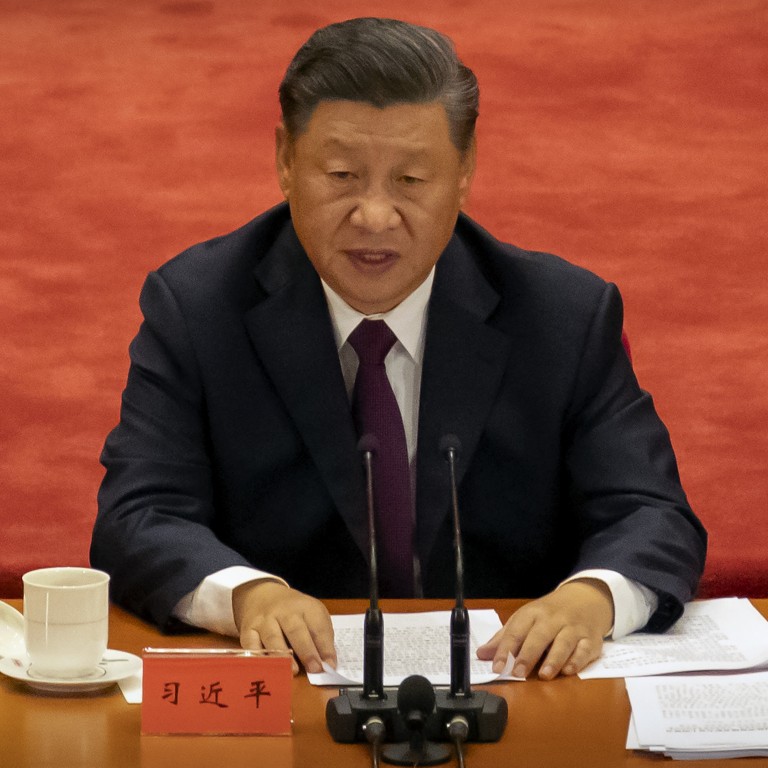
Chinese President Xi Jinping says nation will never be divided
- In veiled reference to Taiwan, president says in speech to mark 70th anniversary of start of Korean war that any such threat to the motherland will be dealt with ‘head-on’
- Xi’s message is a warning to Taipei ‘not to latch onto the US’s power too closely’, academic says
In the fiercely nationalistic speech, Xi blamed the US for having a Cold War-mindset in 1950 and for deploying its 7th fleet to the Taiwan Strait two days after the conflict began.
Xi said as China had modernised, the nation was more determined to safeguard its national interests and territory.
“We would never allow anyone or any force to invade and divide the sacred territory of our motherland,” he said, adding that if “such a serious situation occurs” it would be dealt with “head-on”.
Xi Jinping says China ‘determined to defeat invaders’ in Korean war anniversary speech
In an article published on Thursday in America’s largest Chinese-language newspaper, World Journal, US presidential candidate Joe Biden said he would deepen ties with Taiwan if he was elected to the White House.
“That includes deepening our ties with Taiwan, a leading democracy, major economy, technology powerhouse – and a shining example of how an open society can effectively contain Covid-19,” he said.
Relations between mainland China and Taiwan, which have been separately governed since the end of the Chinese civil war in 1949, have worsened since independence-leaning Tsai Ing-wen was elected as the island’s president in 2016.
Beijing has accused Taipei of trying to damage its interests and supporting the protesters in Hong Kong. It has also used its military might to try and intimidate the island. But Taipei said it would never give in to pressure and urged its allies to continue aiding its defence.
Five key takeaways from Xi Jinping’s Korean war anniversary speech
Chen Ming-tong, head of Taiwan’s Mainland Affairs Council, said at a seminar on Friday that Taiwan would defend itself as “admitting inferiority and giving in will not bring peace”.
He also accused Beijing of “severely undermining the long-term non-aggression understanding between the two sides of the Taiwan Strait”.
“These provocations have seriously undermined the status quo of the Taiwan Strait. They have also escalated regional tension and eroded the long-term tacit understanding between the two sides based on non-aggression and mutual restraint.”
Describing the future challenges to defend Taiwan as “daunting”, Chen called on nations that had “come together based on shared values to join Taiwan in defending this critical frontline of defence for democracy and freedom”.
He also urged Beijing to develop a new mindset for cross-strait development based on “goodwill and mutual respect”.
After election, US dialogue with China on Taiwan must resume, analysts say
Lim John Chuan-tiong, a former researcher at Taiwan’s Academia Sinica, said that while Xi’s message was primarily targeted at domestic audiences and the US, it also “indirectly warned Taipei not to latch onto the US’s power too closely”.
The cross-strait relationship would remain tense during the run-up to the US election, he said, as Beijing was “very alarmed” by the closer relationship between Taipei and Washington.
“Biden’s letter is very important,” he said. “This is probably the first time a candidate [in the US presidential election] expressed his view on Taiwan in a paper that has a large Taiwan readership. That clearly shows the Taiwan issue will continue to heat up, no matter who wins the election.”

